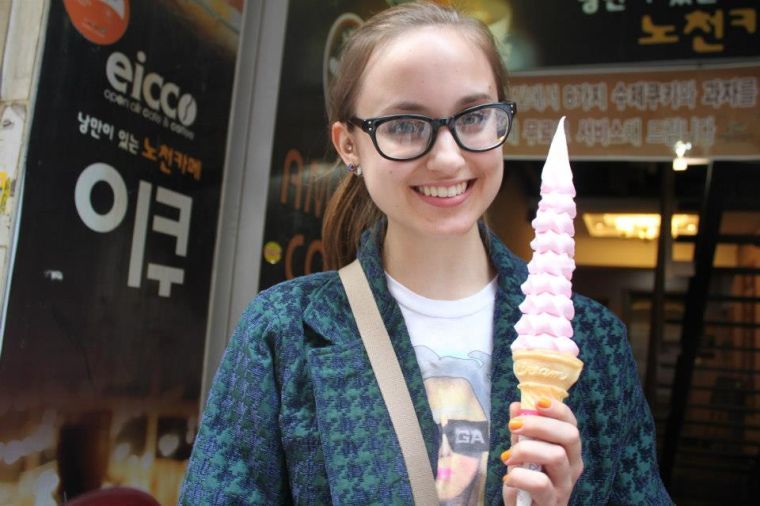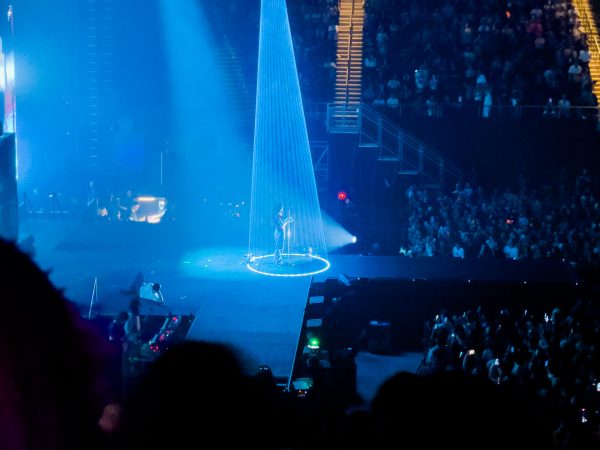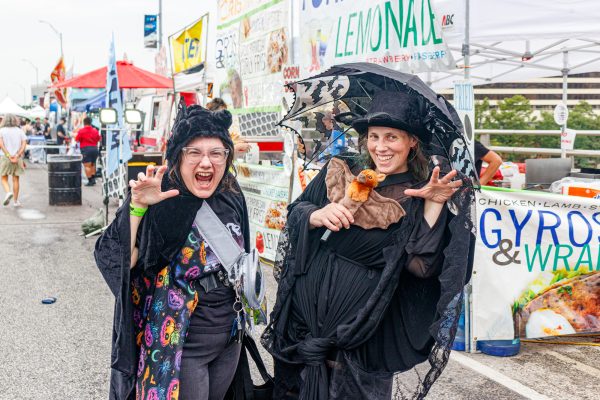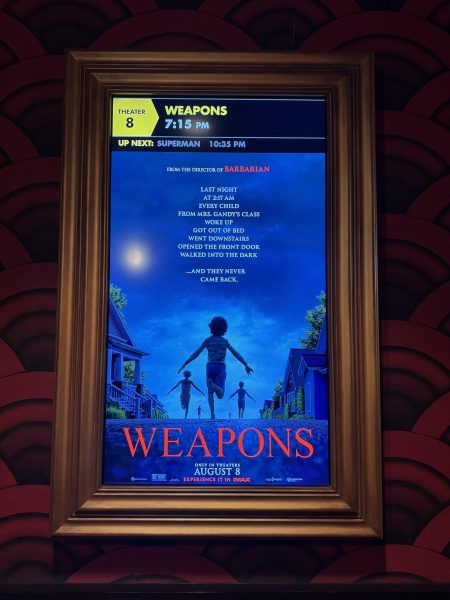Honors alumna explores culture, poetry in South Korea
Jenna Jaco was awarded a Fulbright Scholarship during the last few months of her undergraduate career.
Jenna Jaco is a St. Edward’s University alumna who is currently participating in the Fulbright Program as a teacher in Changpyeong, South Korea. I spoke with her about her time at St. Edward’s as an Honors student and copy chief of Hilltop Views and how these experiences and many more inspired her to get to where she is today.
Hi Jenna! So I thought I’d start off the interview by asking you to explain what the Fulbright program is and why you are in South Korea and what you are doing there?
The Fulbright Program is an international educational exchange program sponsored by the Department of State. There are all kinds of Fulbright programs, for both U.S. and international students, and the one to which I applied — the English Teaching Assistant (ETA) Program — is just one of many.
Then, within the ETA Program, you’ve got a ton of countries with their own sub-program. Generally, you choose the country to which you want to apply, and then apply specifically for that country. For me, of course, that country was Korea.
If you get the grant, the Fulbright ETA Program gives you the funds to come live and teach in that country for around one year. The exact length of time varies, but Korea’s is about 13 months.
The ETA grant emphasizes community engagement as a key factor in being an effective cultural ambassador. So, yes, you’re teaching class at an elementary, middle or high school, but at the end of the day you’re not here just to spread the English language. You’re here to listen and learn and facilitate honest cultural exchange.
What did you major in at St. Edward’s?
I majored in English Writing and Rhetoric at St. Edward’s. I originally had journalism minor but ended up dropping it to take a broader array of literature classes, professional writing classes, honors classes, and creative writing workshops.
How do you feel your time at St. Edward’s helped you get to where you are today? Are there any specific experiences you had at St. Edward’s that you’d like to share or would recommend other students to take part in?
The opportunities I had at St. Edward’s were incredible. There’s a reason why we kill it every year in the Fulbright game. I think part of our success in this area comes from being a comparatively small school. Things I wanted to be involved in on campus were so accessible and conducive to creativity and personal goals — both of which are huge factors in the Fulbright application process.
Specifically, I got involved with Hilltop Views and the Sorin Oak Review. Both of these publications gave me such an array of experiences, from writing reviews of weird movies to coordinating the production of a yearly journal. I’m still in awe when I look back and remember how easy it was to get involved (and stay involved over time) with these awesome publications. Doing this kind of work made me a better writer, a better planner, a better listener. All of these are important to the goals of the Fulbright ETA Program.
My specific reasons for coming to Korea had a lot to do with sense of place in writing — that feeling that a text is from and of a certain culture, a certain time. My concentration in the English writing major was creative writing, and I had become interested in Korean poetry during my semester studying abroad here. Much of what I had learned about poetry — about voice, point of view and diction, all of it — completely changed shape through the lens of Korean poetry.
Meanwhile, all my literature classes at St. Edward’s taught me to read texts from so many different eras as dynamic, accessible tools of discussion and exchange. If I could read and understand the context of a romance written in Middle English, for instance, why not try to understand contemporary Korean poetry in its native cultural sphere? Why not use the skills I learned through working with student publications to understand how people use and respond to the written word in a culture I know only very little about?
My personal ETA grant goals with Korean poetry, then, are an extension of the work I did at St. Edward’s in both classes and extracurriculars. Also, study abroad. Everyone says it, I know, but it’s true. I hope to learn more about the sense of place in Korean culture. I want to better understand the relationship between language and culture. I also want to be able to read a poem in Korean and fully understand what it means, but we’ll see about that one.
The university’s honors program gives you so much freedom with regard to your senior thesis project. My senior thesis project was a poetry manuscript instead of a capstone-type essay. The themes I explored in that self-guided semester directly prepared me for what I’m doing in Korea. I’m still so thankful for that opportunity to create something that applied directly to my personal endeavors post-grad.
After this grant year, I hope to start a career in technical writing while continuing to write (and read and hopefully translate) poetry. Tech writing and poetry actually have a lot in common. Both disciplines are trying to convey very complex ideas with very specific creative choices. I’m excited to see where technical writing goes in the future; I have a feeling the understanding I gain here about the relationship between culture and words will come in handy!






